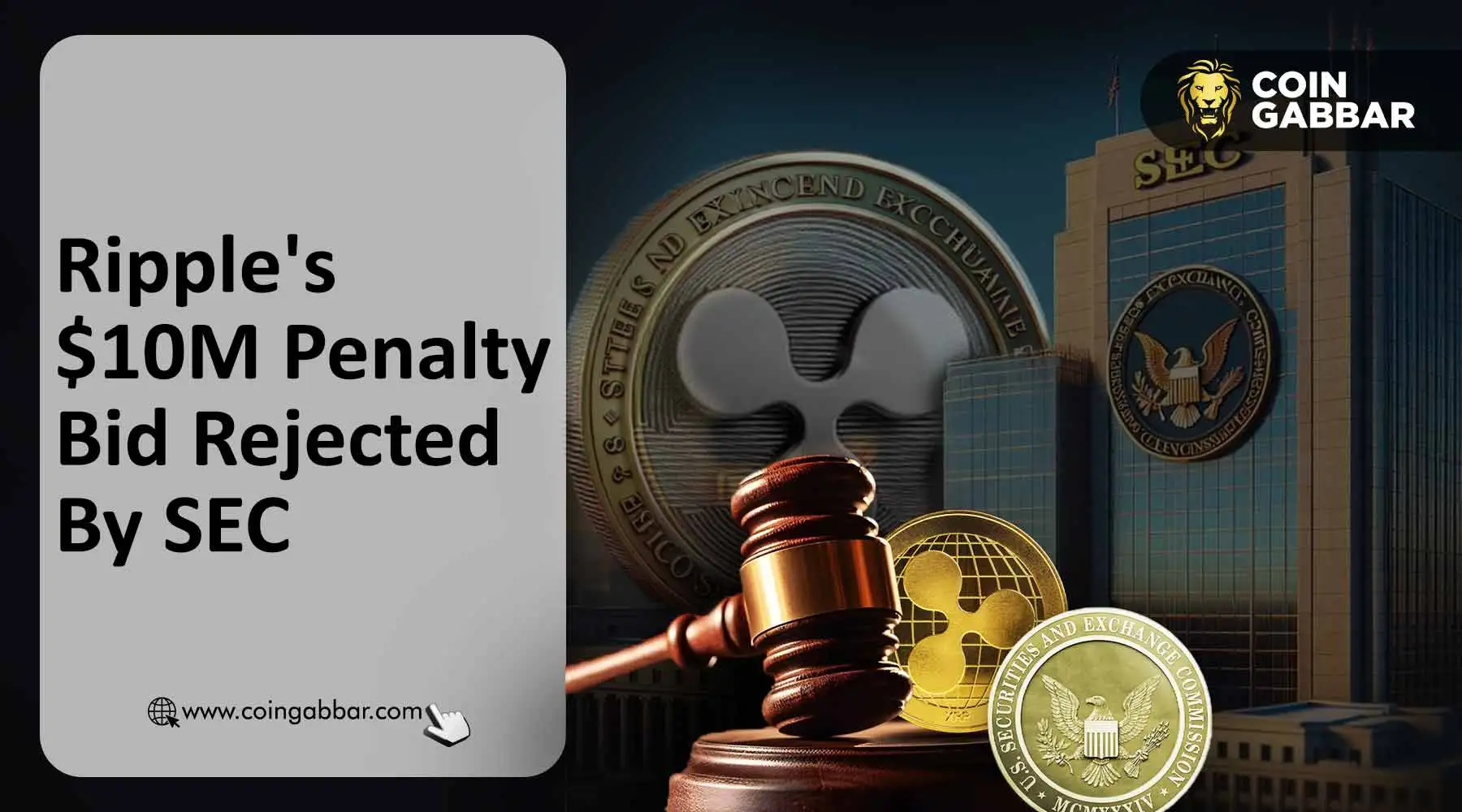
What’s the News
The SEC has quite resolutely denied Ripple Labs’ appeal to decrease the civil penalty. Ripple had sought permission for a maximum of $10 million penalty which is much lower than what the SEC was proposing in the amount of $876.3 million. The SEC also stated that its proposed penalty would be inadequate for the purpose that Ripple intended to achieve.
Terraform Labs’ relatively recent settlement with the SEC was Ripple’s key point in an attempt to reduce the penalty. On June 13, Ripple used the $4.5 billion settlement between the SEC and Terraform Labs that involved a $420 million civil penalty. Ripple suggested that its penalty should be similarly reduced.
Actually, In April 2024, a Manhattan jury found Terraform Labs liable for fraud. Subsequently, Terraform Labs agreed to a settlement with the SEC, involving a $4.47 billion payment, despite having only $75 million in known assets.
The SEC responded in a letter to New York District Court Judge Analisa Torres that the situations were not comparable. The SEC emphasized that Terraform Labs was bankrupt, had agreed to return money to investors, and had removed the leaders responsible for the violations. In contrast, Ripple had not agreed to any such measures.
The SEC pointed out that Ripple's comparison was not valid because the $420 million civil penalty for Terraform Labs was based on a different metric. The penalty was around 12% of Terraform’s gross profit from the violative conduct, which amounted to over $3.5 billion.
Applying the same ratio to Ripple’s case, where the SEC asked for disgorgement of $876.3 million in gross profits, would result in a civil penalty of $102.6 million.The SEC claimed that a small amount of penalty would not serve the purpose of civil penalty statutes, which is to discourage violations and enforce responsibility.
The penalties that the SEC is proposing for Ripple are very steep and amount to about $2 billion. This includes $198.2 million in prejudgment interest, $876.3 million in civil penalty, and $876.3 million in another form of penalty in disgorgement. These figures are in line with the SEC’s assertion that the penalties should be punitive enough to act as a deterrent and protect the integrity of the financial markets.
The legal battle between the SEC and Ripple started in 2020 when the SEC claimed that Ripple sold securities without registration. Judge Torres concluded that Ripple did sell securities without registering them but only to accredited investors.
More recently, the SEC opposed some of Ripple’s documents as being confidential. The regulator demanded that Ripple reveal the income it earned from the sales of XRP – the cryptocurrency in the middle of the case.
As per CoinGabbar, the SEC’s dismissal of Ripple’s plea to reduce the penalty shows that the regulator and the crypto firm have not yet reached a middle ground. This legal case continues and the SEC still insists on getting hefty penalties to ensure compliance and prevent future misconduct in the cryptocurrency Industry.
Also Read: Countdown Begins Whether Spot Ether ETFs Launch In July?

Sakshi Jain is a crypto journalist with over 3 years of experience in industry research, financial analysis, and content creation. She specializes in producing insightful blogs, in-depth news coverage, and SEO-optimized content. Passionate about bringing clarity and engagement to the fast-changing world of cryptocurrencies, Sakshi focuses on delivering accurate and timely insights. As a crypto journalist at Coin Gabbar, she researches and analyzes market trends, reports on the latest crypto developments and regulations, and crafts high-quality content on emerging blockchain technologies.
1 month ago
Bitcoin news updates